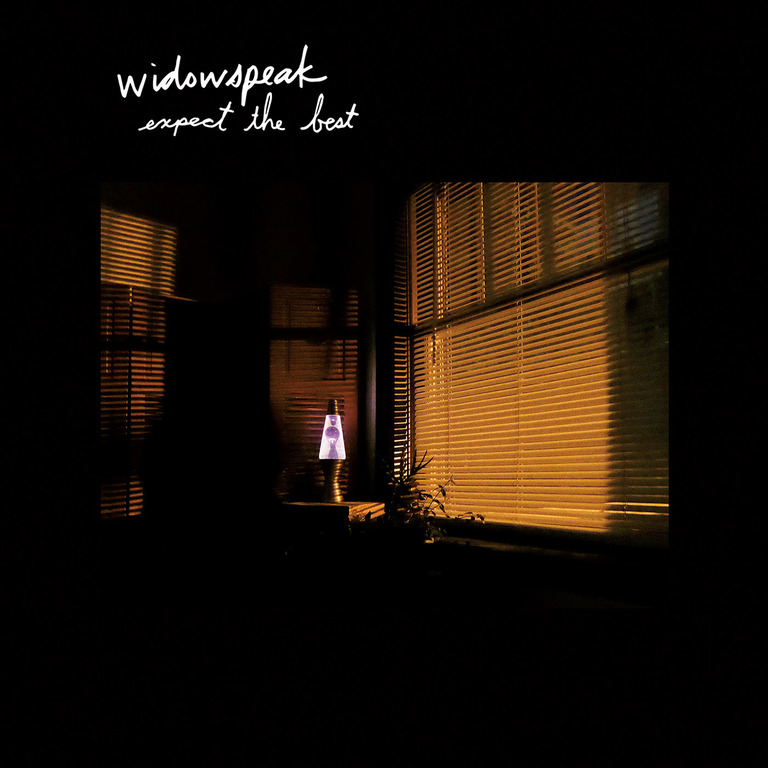I’ll admit: sometimes, when I sit down to write a review, I think about what the other writers (mostly male) might do. In this case, I projected, they’re gonna size up Erika Anderson, measure the size of perceived stab wounds, tease out sources of trauma, and come away with prophetic verses like 'this is the voice of America in 2017' or 'EMA is the most radical chick in the game right now'. They will blow up her disconnected past, trace her present pilgrimage into the outskirts of Portland, and declare the future altered.
But the problem with that viewpoint – and what EMA wants to tell us, I swear – is that this rage in Exile In The Outer Ring, that seeps out from scrubbed-clean filth like scalding water from a 20-yr old industrial dishwater, is not just hers. Even her previous album – the hazy dystopian swan song to her digital identity, The Future’s Void - spoke to anyone who’s ever felt submerged by the internet. Here, that displacement lurches into the real world: in parking lots, outside casinos, inside bedrooms, under the harsh rays of the sun, among trash-talking dudes. And while EMA still swirls blasted riffs around her and slams us back with aftershock drums, this time she stands visibly before us, blueprints and implements of destruction in clear sight.
First things first, though – before we delve into the girls and the boys and the kids from the void (i.e. other artists in other beige basements), let’s first admire the structure of this outer ring. At the fringes, you have the panoramic shots of disillusion: '7 Years' rues the past in a silvery pool of diffracted light, while 'Always Bleeds' casts shade over the future as a golden drone crawls across the sky, obscuring whole states in a Mogwai-paced gleam. (EMA has swapped the symbolic positions of light and dark in Exile: sunlight reveals and destroys, while shadows offer solace and protection.) As we approach the centre, the violent and promiscuous impulses usually reserved for men bubble into view, reclaimed firmly in terms that Trent Reznor only wishes he could convey again. Caught undertow in this wreckage, you might mistake such a layout for entropy; step back, however, and the boarders and subdivisions wrought by EMA’s hand become clear.
Speaking of confidence – well, hot damn. Zoom back to the center a minute. I can and have listened to 'Down and Out' half a dozen times in a row – and why? Why? What magnetism is this, downcast and deadly like the Kills, but fizzled and fractured like frayed wires, with a line as old as the blues itself: “everyone thinks you’re worthless when you’re down and out”? But the real feat – both here and in the deliriously licentious, Knife-twisted 'Fire Water Air LSD' that follows – is how EMA strides through self-destruction without shame. That’s because, as she explains in torch song 'Blood and Chalk', her goals can’t be bound by her public, physical form. "I know the rage that’s in me / but I’m just what you made me." Self-annihilation, then, seems logical and necessary. (Man, doncha just love when you can tease abstract strands of logic from a pop culture artefact? I suspect EMA intended this.)
This leads us to the aforementioned boy-vs-girl tension. Throughout Exile - indeed, even more than the suburban imagery, which after a while vanishes on the horizon – EMA usurps the role of violent avenger normally ascribed to angry white males. In industrial hymn 'I Wanna Destroy' she vows to validate the existence of middle-class kids through annihilation; '33 Nihilistic and Female' slams a chrome- plated mallet in the face of anyone who might deny that she’s capable of such destruction. And in another succinct and Kills-esque crawler 'Aryan Nation', she draws a fine line between her mission and the past glories of the patriarchy: "tell me stories of famous men / I can’t see myself in them".
But in the skeletal 'Receive Love', we see the real and human difference between EMA and ordinary dudes with rage – she’s torn between both sides. "I’m not always scared about the man / just that sometimes it’s hard to trust in them.” Of course, we’ve seen the inside of Anderson before (even on this album – see the self-effacing torch song of 'Blood and Chalk', where EMA erases her physical form), but choked empathy like this takes a ton of guts to admit.
That scabbed, throat-rubbed-raw vulnerability cinches Exile for me, more than the whole back-to-the-‘burbs conceit. What EMA aims to achieve here, after all, extends beyond the outer ring: she’s not the only one who can wreck destruction upon the coddled masses and men that have never known oppression or oblivion. Rise, kids of the void – follow the path of your new cult leader.
-
9Lee Adcock's Score






















